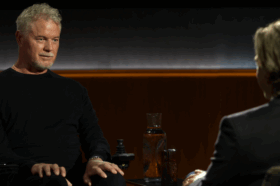
 By Steve Kabler, Partner in the Entertainment, Intellectual Property, Technology, and Corporate practices at Potomac Law Group
By Steve Kabler, Partner in the Entertainment, Intellectual Property, Technology, and Corporate practices at Potomac Law Group
You may be familiar with FCC closed captioning rules that require programming delivered on traditional linear TV networks to be closed captioned (subject to certain exceptions and exemptions), but what about programming on the FAST channels that many networks are rolling out alongside their linear TV networks?
FCC rules on closed captioning for Internet-delivered full-length programming generally provide (subject to certain exceptions and exemptions):
- Full-length Internet video programming delivered through the Internet must be captioned if it has been shown on TV in the US with captions.
- Full-length Internet video programming delivered through the Internet that has not been shown on TV in the US with captions is not required to be captioned. 47 CFR § 79.4.
The exceptions and exemptions from the closed captioning rules available for Internet-delivered programming are more limited than for programming on traditional linear TV networks. An exemption can be requested via petition to the FCC if compliance with the closed captioning rules would be economically burdensome. In addition, there are special rules, for example, for archival Internet video programming that a distributor already delivers via the Internet and then is later shown on TV with captions.
There is also a caveat to the foregoing in that the FCC explained in its 2012 IP Captioning Order that the “IP closed captioning rules do not apply to traditional managed video services that MVPDs provide to their MVPD customers within their service footprint, regardless of the transmission protocol used; rather, such services are already subject to [the closed captioning rules for linear TV networks].” 27 FCC Rcd 787, 797. This raises the possibility that the closed captioning rules for Internet-delivered programming might not apply to a FAST channel, but the answer is uncertain as the FCC has not opined on whether FAST channels can constitute “traditional managed video services.”
Distributors of FAST channels should make themselves familiar with the closed captioning rules, and the availability of exceptions and exemptions, and in order to ensure compliance and avoid customer and FCC complaints it is always wise to consult with counsel regarding specific circumstances.
Steve Kabler regularly represents multi-channel television platforms, networks and producers in distribution and programming matters.







